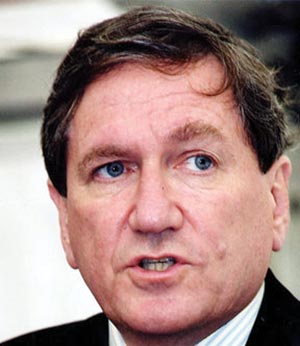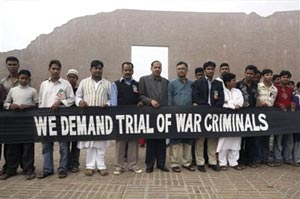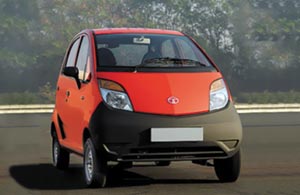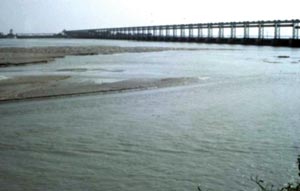|
|
|
ADVERTISEMENTS
|
|
PREMIUM
- HAPPY HOLIDAYS!
- Siliconeer Mobile App - Download Now
- Siliconeer - Multimedia Magazine - email-Subscription
- Avex Funding: Home Loans
- Comcast Xfinity Triple Play Voice - Internet - TV
- AKSHAY PATRA - Bay Area Event - Sat. Dec 6
- Calcoast Mortgage - Home Loans
- New Homes in Silicon Valley: City Ventures - Loden Place - Morgan Hill
- Bombay to Goa Restaurant, Sunnyvale
- Buying, Sellling Real Estate in Fremont, SF Bay Area, CA - Happy Living 4U - Realtor Ashok K. Gupta & Vijay Shah
- Sunnyvale Hindu Temple: December Events
- ARYA Global Cuisine, Cupertino - New Year's Eve Party - Belly Dancing and more
- Bhindi Jewellers - ROLEX
- Dadi Pariwar USA Foundation - Chappan Bhog - Sunnyvale Temple - Nov 16, 2014 - 1 PM
- India Chaat Cuisine, Sunnyvale
- Matrix Insurance Agency: Obamacare - New Healthcare Insurance Policies, Visitors Insurance and more
- New India Bazar: Groceries: Special Sale
- The Chugh Firm - Attorneys and CPAs
- California Temple Schedules
- Christ Church of India - Mela - Bharath to the Bay
- Taste of India - Fremont
- MILAN Indian Cuisine & Milan Sweet Center, Milpitas
- Shiva's Restaurant, Mountain View
- Indian Holiday Options: Vacation in India
- Sakoon Restaurant, Mountain View
- Bombay Garden Restaurants, SF Bay Area
- Law Offices of Mahesh Bajoria - Labor Law
- Sri Venkatesh Bhavan - Pleasanton - South Indian Food
- Alam Accountancy Corporation - Business & Tax Services
- Chaat Paradise, Mountain View & Fremont
- Chaat House, Fremont & Sunnyvale
- Balaji Temple - December Events
- God's Love
- Kids Castle, Newark Fremont: NEW COUPONS
- Pani Puri Company, Santa Clara
- Pandit Parashar (Astrologer)
- Acharya Krishna Kumar Pandey
- Astrologer Mahendra Swamy
- Raj Palace, San Jose: Six Dollars - 10 Samosas
CLASSIFIEDS
MULTIMEDIA VIDEO
|
|
|
|
|
NEWS DIARY
U.S. Removes Kashmir From Envoy's Mandate | Bangladesh Moves to Try War Criminals | Tata Motors: $54 million Loss | Kosi River Diverted | Alcohol Crackdown | Desi Viagra | Infrastructure Loan | Fighting Militants
U.S. Removes Kashmir From Envoy's Mandate
 Obama envoy Richard C. Holbrooke Obama envoy Richard C. Holbrooke
Inside a chandeliered ballroom Jan. 29, Indian diplomats and business leaders and American officials held forth about a new “Cooperation Triangle” for the United States, China and India. But little mention was made at the Asia Foundation's conference on Indo-U.S. relations of the Indian government's recent diplomatic slam-dunk.
India managed to prune the portfolio of the Obama administration's top envoy to Pakistan and Afghanistan, Richard C. Holbrooke — basically eliminating the contested region of Kashmir from his job description. The deletion is seen as a significant diplomatic concession to India that reflects increasingly warm ties between the country and the United States, according to South Asia analysts.
Indian diplomats, worried about Holbrooke's tough-as-nails reputation, didn't want him meddling in Kashmir, according to several Indian officials and Indian news media reports. Holbrooke is nicknamed “the Bulldozer” for arm-twisting warring leaders to the negotiating table as he hammered out the 1995 Dayton peace accords that ended the war in Bosnia, a peace that has stuck.
“I think it is time for us — having fobbed off Holbrooke — to sit quietly and ask where are we and how do we manage the situation,” said C. Raja Mohan, an Indian strategic analyst who served on India's national security advisory board in 2006.
Mohan's comments captured the public glee many Indians feel over their country's latest diplomatic success. It follows the government's victory in securing a deal with the United States that gives India access to civilian nuclear technology, even though it is a not a party to the Non-Proliferation Treaty.
India and Pakistan have made slow but steady progress on Kashmir over the past four years, but relations quickly chilled after the November attacks in Mumbai; India accused Pakistan of aiding in the three-day assault.
|TOP|
Bangladesh Moves to Try War Criminals
 Bangladeshi people hold a banner demanding the trial of war criminals in Dhaka Bangladeshi people hold a banner demanding the trial of war criminals in Dhaka
Bangladesh's government said it was pressing ahead with plans to put on trial people accused of war crimes during the country's bloody liberation struggle in 1971.
Law Minister Shafiq Ahmed told AFP the United Nations had agreed to provide the government with assistance for the trial of hundreds of alleged war criminals.
“The government will try the war criminals as soon as possible as it was a key pledge in our election manifesto. We have to do it,” he said.
“We could set up a special war crime tribunal according to the International Crimes Tribunals Act 1973.”
Bangladesh's newly-elected Prime Minister Sheikh Hasina, who led her party to a landslide parliamentary election victory last month, has already said her government is “pledge-bound” to put war criminals on trial.
Bangladesh won its independence from Pakistan after a nine-month liberation war in 1971. Three million people were killed during the struggle, according to the government.
Ahmed said “members of the auxiliary forces created by the Pakistan government to aid its army during the war and who are accused of crimes such as murder, looting, rapes, arson would be tried.”
After the war, Bangladesh's founding leader Sheikh Mujibur Rahman arrested 37,000 people and tried some under a collaborators' act.
Most of those arrested were Islamists who did not want the country to separate from Islamic Pakistan to become secular Bangladesh.
But 11,000 people were later pardoned by Sheikh Mujib, who was eventually assassinated in a military coup. The remaining 26,000 were freed after a post-Mujib military government repealed the collaborators' act.
A private War Crimes Fact Finding Committee has recently unveiled a list of 1,597 people it alleges to be war criminals, including the top leaders of the country's largest Islamic party, Jamaat-e-Islami.
Law Minister Ahmed said he hoped the trials would be finished by the end of the government's tenure.
|TOP|
Tata Motors: $54 million Loss
 Tata Nano Tata Nano
Tata Motors lost 2.63 billion rupees ($54 million) last quarter as cost-cutting efforts failed to make up for withering demand, high commodities prices and foreign exchange losses, company officials said.
A year earlier, the company posted a quarterly profit of 4.99 billion rupees.
“I do believe we had the worst” during the quarter, managing director Ravi Kant said. “We don't expect to see this kind of thing, I hope, in my lifetime. We are seeing signs of improvement which is sustainable.”
Tata, India's largest commercial vehicle maker, said it sold 98,760 vehicles from October to December, down 31.7 percent from the same period last year, while revenues slipped 34.4 percent to 47.6 billion rupees ($977.9 million).
Tata continues to struggle to refinance the remaining $2 billion of a $3 billion loan it took to buy the Jaguar and Land Rover brands from Ford Motor Co. in June.
In a short, sober session with reporters, Tata chief financial officer C. Ramakrishnan said plans for an equity offering had been canceled due to unfavorable market conditions. The company is in talks with banks about financing, he added.
Standard & Poor's has downgraded Tata's debt, which is likely to increase the company's borrowing costs.
Jaguar sales rose from 10,667 vehicles to 14,710 vehicles in the quarter, thanks to strong demand for the Jaguar XF, but that wasn't enough to make up for steep losses at Land Rover. Together, volume for the two brands plummeted 35.2 percent to 49,186 vehicles, Ramakrishnan said.
Tata officials said they aim to cut costs by an additional 10 billion rupees ($204 million) in the next three years and have canceled 7 billion to 8 billion rupees ($143 million to $163 million) of their planned 100 billion rupee ($2 billion) capital expenditure plans.
|TOP|
Kosi River Diverted
 Barrage on the Kosi river. Barrage on the Kosi river.
The river responsible for floods that displaced millions of people in India and Nepal five months ago has been diverted back to its original course, reports the BBC.
The Kosi river burst its man-made embankment in Nepal close to the Indian border in the middle of August and went massively off-course.
Nearly 400 people died in the ensuing floods in India's eastern Bihar state and millions were affected.
Tens of thousands of people in Nepal were left homeless in the floods.
Restoring the Kosi to its old route has involved a team of more than 500 construction staff.
They have worked frantically to build coffer dams out of sandbags, concrete and galvanized wire and thereby restore the man-made embankment that was breached.
They finally managed to re-divert the river late on Monday.
A disaster prevention official in south-east Nepal says that all the river water is now flowing along its original channel, far to the west of the new course it had taken since August.
For months after the breach, work was impossible; it is only now that water levels have receded enough to enable it to be completed by the Indian company given the job by the government in Delhi.
For millions of displaced people, however, the suffering will not be over for a long while.
The rerouted Kosi swept across a vast part of the Gangetic plain, destroying millions of homes and killing hundreds of people, mainly in Bihar.
Two months ago the BBC visited the affected part of Nepal, where formerly fertile farmland had become covered in a thick layer of silt and sand and made completely uncultivable.
Eyewitness in Bihar say many government-run camps have closed but that the displaced people have nowhere to go.
|TOP|
Alcohol Crackdown
 The chief minister of Rajasthan has said that the previous state government was wrong to promote “a culture of liquor.” The chief minister of Rajasthan has said that the previous state government was wrong to promote “a culture of liquor.”
Ashok Gehlot said that the state had not discouraged young people from drinking. His government closed down 800 alcohol shops on one day.
Gehlot said the authorities would move to prevent “boys and girls going hand in hand” to pubs and clubs.
Alcohol policy was a prime issue during state assembly elections last year.
Gehlot's Congress party accused the previous BJP government of opening too many alcohol outlets in the state, an accusation denied by the BJP.
“We will stop it,” he told a news conference.
Gehlot's comments come a day after his Congress government approved a new excise policy which reduces the number of liquor shops in the state.
The new policy was endorsed at cabinet meeting chaired by Gehlot in Jaipur. It stipulates that license fees for hotels and bars serving alcohol are to be increased.
The state has 1,800 Indian Made Foreign Liquor outlets. Under the new policy, hundreds will be closed, in addition to 150 shops situated near religious places and educational institutions.
The state government also announced that 1 percent of the revenue earned through excise on alcohol would be spent on providing for the poor as well as rehabilitating families involved in making hooch, or illicit alcohol.
The authorities say that hooch claimed 23 lives in Rajasthan last month alone.
|TOP|
Desi Viagra
 Three pieces of Yarshagumba displayed in the palm of a hand in Kathmandu. Three pieces of Yarshagumba displayed in the palm of a hand in Kathmandu.
Every summer, the mountains in north Nepal experience a rush of herb pickers as Himalayan villagers en masse stop all other work and head for the slopes to look for yarshagumba, a high-altitude fungus that is highly prized, especially by the Chinese for its alleged power to enhance sexual prowess.
This year, however, the “Himalayan Viagra” of Nepal is going to face stiff competition. Three Nepali pharmaceutical companies based in the Terai plains in south Nepal are vying to market desi versions of the prescription medicine for erectile dysfunction.
Quest Pharmaceuticals and Arya Pharma, both based in the border town of Birgunj in Parsa district on the Indo-Nepal border, as well as Alive Pharmaceuticals in Biratnagar in Morang district, have received permission from Nepal’s Department of Drug Administration to manufacture and market the “Nepali Viagra,” the Dainikee Web site reported.
While Alive’s offering is already in the market under the name Excite, Quest’s version is called Medigra. Arya Pharma is in the process of beginning production, the site said.
However, with the present Maoist government having begun a vice cleanup drive, the pills are not being sold directly as sex drugs. The government has begun regulating the sale of alcohol and tobacco, imposed a time limit on dance bars and started a crackdown on massage parlors and cabin restaurants that are regarded as a front for the oldest profession in the world.
According to DDA chief Radha Raman Prasad, the Nepali drugs are meant for the treatment of heart problems, like pulmonary hypertension. The government agreed to the manufacture of the Nepali medicine following requests from the Gangalal Heart Centre, one of Nepal’s oldest heart hospitals, Prasad said.
Officially, Viagra is banned in Nepal. However, a black market flourishes with caches smuggled in from India across the porous border and stolen clandestinely at substantially higher prices.
|TOP|
Infrastructure Loan
The World Bank has chalked out a $14 billion India-specific strategy to fast-track development of its much-needed infrastructure and to support the seven poorest states achieve higher standards of living for their people.
Bihar, Chhattisgarh, Jharkhand, Madhya Pradesh, Orissa, Rajasthan, and Uttar Pradesh have been identified for support by the bank.
World Bank economic advisor Giovanna Prennushi said the strategy, to be implemented through a three-year lending program from 2009-2012, has been closely aligned with the Indian government's own development priorities expressed in the 11th Plan.
Of the $14 billion, $9.6 billion will come from the International Bank for Reconstruction and Development and $4.4 billion (special drawing rights or SDR 2.982 billion equivalent at the current exchange rate) from the International Development Association, the bank said in a statement.
The strategy recognizes India's needs for major investments in power, transport, water, and urban development for sustaining rapid growth, adding inadequate power supply remains a critical constraint to growth.
While India's gross domestic production grew at an average of about eight percent a year over the past five years, electricity generation only grew at an average of 4.9 percent per year.
The national and state highway networks have not kept pace with the tremendous growth in demand for road transport, the World Bank said, adding only about 30 percent of state highways are two-lane and more than 50 per cent are in poor condition.
|TOP|
Fighting Militants
Bangladesh Prime Minister Sheikh Hasina says she plans to push to set up a south Asia task force to combat the growing menace of terrorism in the region.
The move comes at a time when regional countries including Bangladesh, India, Pakistan, Sri Lanka and Afghanistan have faced increased terror attacks and growing threats from various militant groups.
“I have already instructed the authorities concerned (in Bangladesh) to take the initiative to form the South Asian Anti-terrorist Task Force which will create scope for tracing militants and put them on trial,” Hasina told parliament.
“Terrorists have no political, geographical or religious identity. Anyone killing people in the name of Islam (Muslim religion) are enemies of our faith.”
Hasina, who took over as prime minister of the south Asian country on Jan. 6, following a landslide election win, said the proposed task force would “enhance cooperation among police force and courts in regional countries in tracking down militants.”
Hasina said her government would take action against any bank or other institutions involved in funding militant activities.
Bangladesh saw a series of terror attacks after 2004 when Hasina herself narrowly escaped death in a grenade attack on a rally in Dhaka, in which 23 leaders and workers of her Awami League were killed and over 150 were wounded.
|TOP|
|
|
|
|
|
|